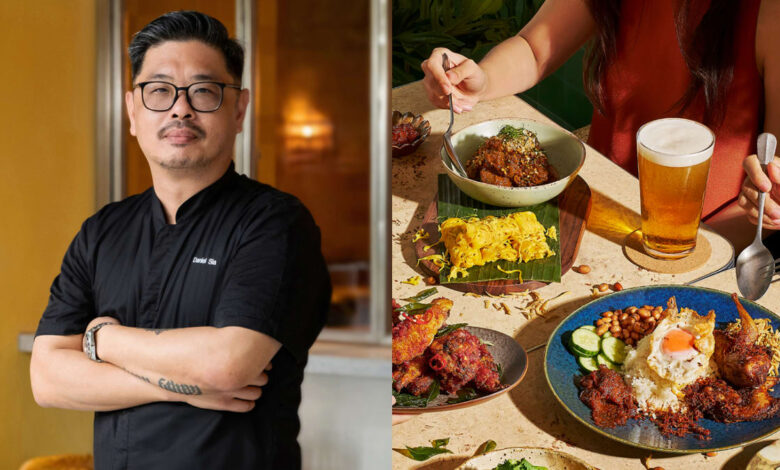Beyond nasi lemak: The Coconut Club’s Daniel Sia is taking the Singapore brand overseas

The restaurant always had its detractors, often for the price of its nasi lemak. Its signature Ayam Goreng Berempah, which includes spiced fried chicken thigh with coconut rice, fried egg, fried ikan bilis, peanuts, cucumber and sambal, has gone from S$12.80 in 2016 to S$21 in 2023. Last week, the price was dropped to S$18 at all its outlets.
Sia said: “We try to keep it as affordable as possible, but we also want to be a fair employer. The cost of living has gone up. For our staff to survive, their salary must be of a certain amount. Just because you’re working in a nasi lemak shop, it doesn’t mean you don’t have to be paid market price – our salaries are comparable to those paid at fine dining restaurants.”
There is no scrimping on ingredients either. The coconuts for the coconut milk are sourced from the same family-owned plantation in Malaysia since day one and is cold pressed on-site with a proprietary temperature-controlled machine.
‘NOT TRYING TO REINVENT’
Sia uses a combination of Mawa and Kampong coconuts for a lighter touch. “We want to have that balance of floral notes and ‘lemak-ness’,” said Sia, whose sharp sense of flavours were honed from the age of 11 when his Peranakan maternal grandmother would send him out to purchase specific grocery items such as SCS unsalted butter for her cooking.
The restaurant uses two-year-old Thai jasmine rice for a slightly mushy texture that still has a bite even when mixed with sambal. The ikan bilis is a high grade supply that is thoroughly cleaned, gutted, head-removed and then split in half so that there is a meaty taste even after being fried. The sambal tumis (sauteed chilli paste) accompanying the nasi lemak is made every two to three days by blending fresh ingredients like lemongrass, onions and garlic and cooking it down low and slow for several hours.
Sia said: “There will always be people who think that nasi lemak should be S$5 but there’re also those who have become our repeat customers. They feel that the concept is refreshing, that they don’t have to be sitting in a hot hawker centre but be in a comfortable environment eating something that’s authentic. We are not doing anything fusion here. We’re not trying to reinvent. We’re bringing back dishes that are no longer found in restaurants.”
Think the Sotong Sumbat Telur Asin Lemak Chilli Padi, a traditional Malay dish of stuffed squid with salted egg yolk in spicy turmeric and coconut gravy that is usually only cooked at home. The other is Udang Bakar with Sambal Belimbing, or grilled tiger prawns with sambal titek and pickled belimbing. Both dishes are only available on the flagship’s second-floor dining menu.
Sia shared that he barters the belimbing (a sour green fruit) from two friends who own a tree, with kueh (local snacks or desserts).
He added: “We pickle the fruit to preserve it and it goes on the menu until it runs out.”

